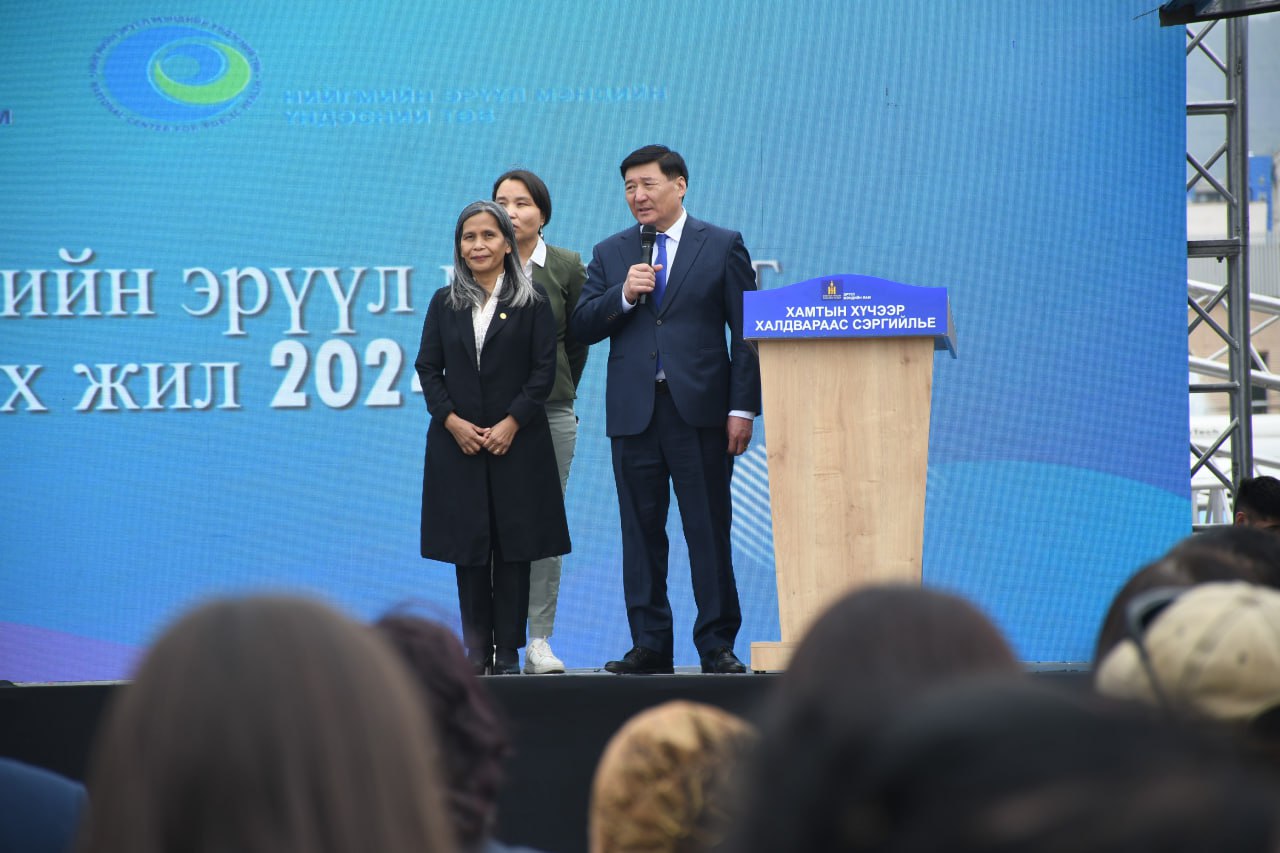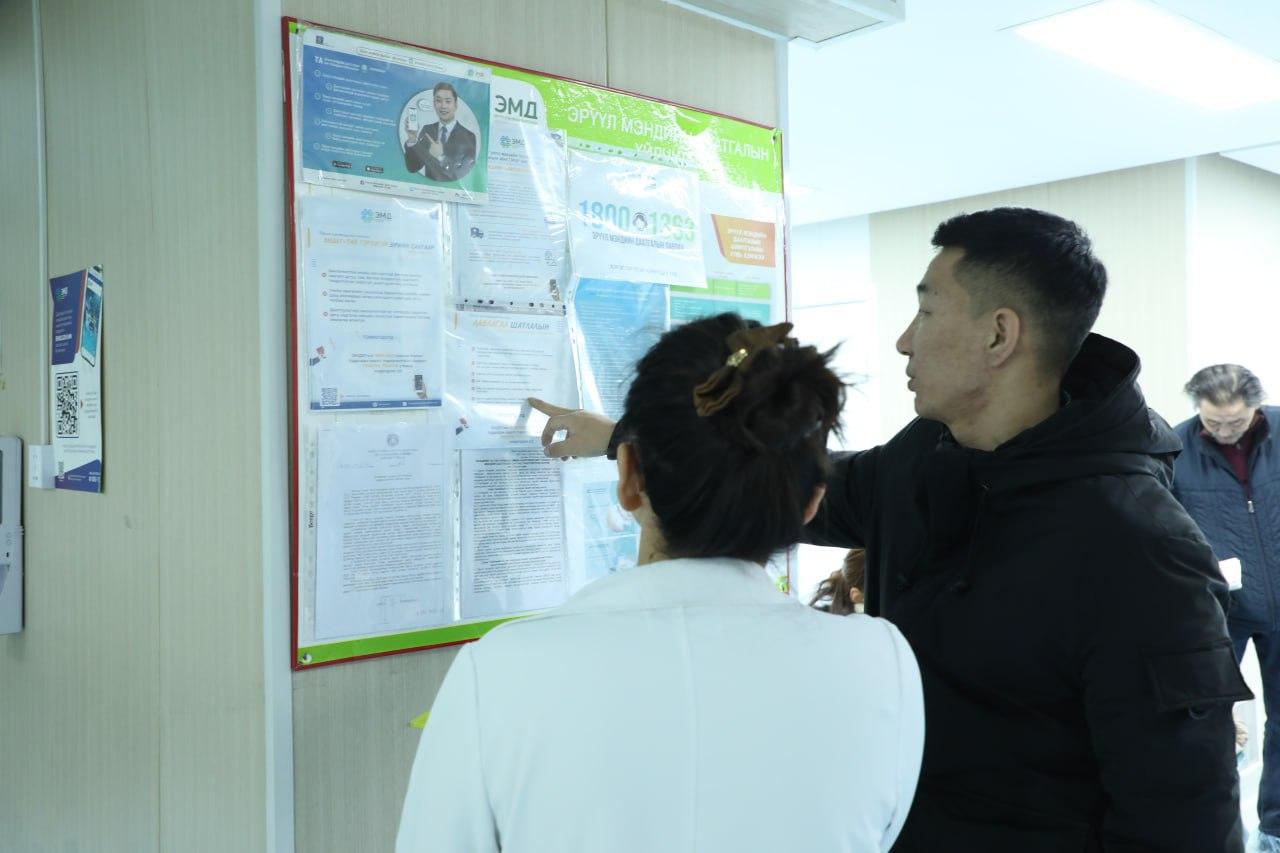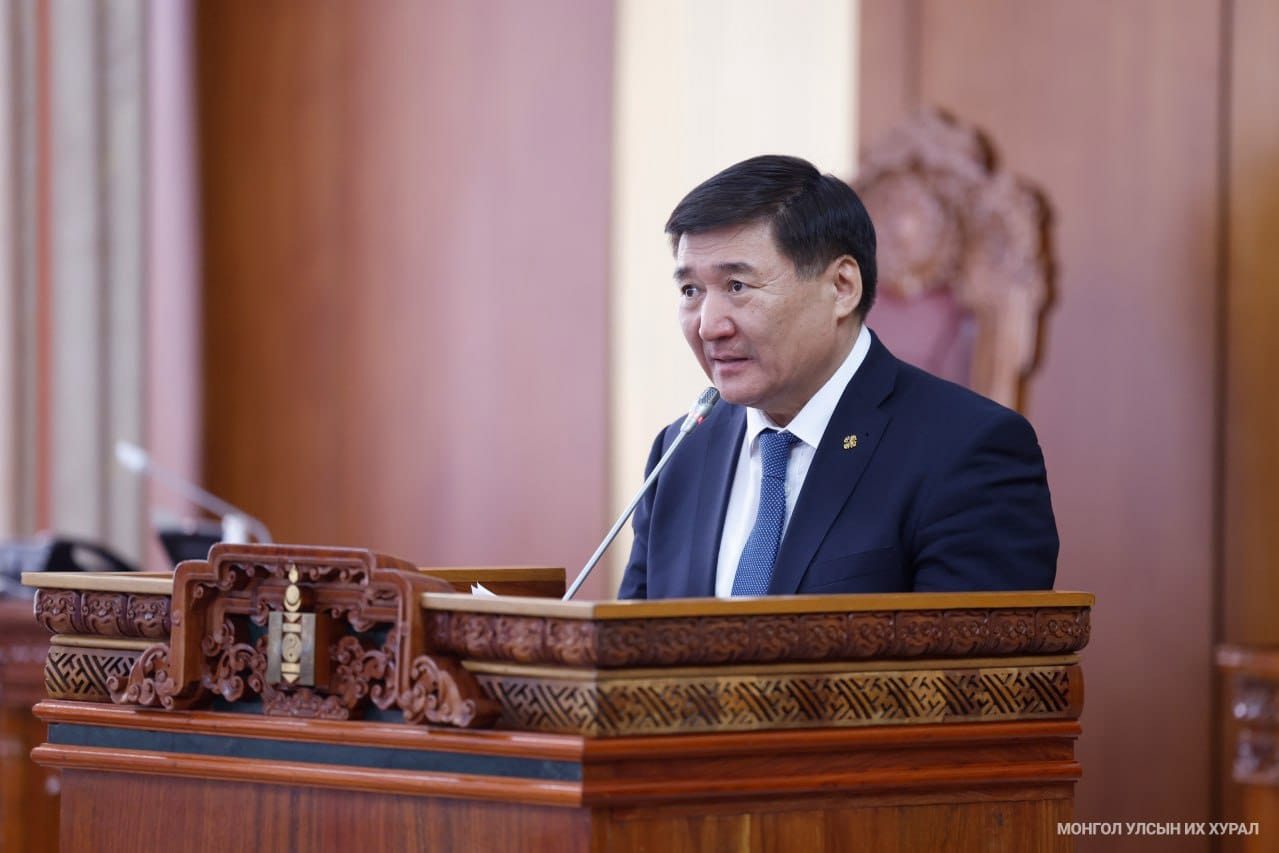The first Law on Public Health Care and Services was approved by the Great Khural (Parliament) of Mongolia and came into effect on April 1st, 2024. Consequently, the Ministry of Health declared this year as the “Year of Public Health Promotion” and organized an awareness day for citizens, businesses, and organizations on May 22 at Sukhbaatar Square, the central square in capital city Ulaanbaatar. This is a turning point for the health system as the Ministry wishes to refocus from financing predominantly medical care to dedicating more resources to public health and preventive care.
As reported by the Ministry of Health of Mongolia on its website here, the Public Health day was opened by Minister of Health S. Chinzorig and Country Representative from WHO Dr. Soccoro Escalante. The event was attended by National Health Centers, Health Departments, referral hospitals under the Ministry of Health, and national centers to provide health education to citizens.
Minister of Health S. Chinzorig said:
“In Article 17.2 of the Constitution of Mongolia, a citizen has a duty to protect his health, but neither the government, nor the health organization, nor the doctors talk about this. Changing the long-standing wrong attitude that doctors and hospitals are responsible for your health is one of the main goals of the “Year of Population Health Promotion”, which is being opened today. Protecting public health is a two-sided issue. One side is public health care and the other side is medical care. But we have abandoned public health care and invested enormous amounts of time and resources in focusing only on medical care after illness.
Looking at the experience of other countries, the majority of the funds in the health sector are allocated to public health and primary care services, while in our country, only about 20% is spent in this direction, which is contrary to the standards of developed countries. Also, the Law on Health stipulates that there are two types of health care and services: public health care and services, and medical care and services. The Law on Medical Care and Services was approved in 2016. However, public health care services have been neglected. Therefore, the first law on public health care services was developed and approved by the Parliament. The law came into effect on April 1, and 2024 was declared as the Year of Public Health Promotion in order to improve the implementation of the law and promote it to the public.
With the passing of the law, a national system of providing public health care and services to the population will be established. As a result, cardiovascular diseases, cancer, accidents and injuries, diseases of the digestive system, and diseases of the respiratory system, which are the leading causes of death for the entire population of Mongolia, will be managed better. It is becoming possible to regularly involve the public into prevention and early detection of these and other diseases. 42% of the total population participated in prevention, early detection, examination, analysis, and diagnosis, and 77.9% of suspected diseases were registered.
In his speech, Minister S. Chinzori emphasized that the formation of healthy habits and routines, promotion of health, and providing health education are not only the responsibility of the health sector, but also the concern of every individual, organization, and social sector and urged to fulfill the need for healthy lives.
Mrs. Soccoro Escalante, WHO Resident Representative in Mongolia, said:
“The WHO highly appreciates the efforts of the Mongolian Government and the Ministry of Health to bring health care closer to the citizens in a people-centered manner after the epidemic.” It was noted that creating and strengthening care services in this area and supporting a healthy lifestyle are effective in creating conditions for the prevention of many types of diseases.
According to the study of the prevalence of non-communicable diseases, accidents and risk factors, 1 out of 3 people aged 15-69 and 1 out of 2 people aged 45-69 in Mongolia are at high risk of contracting non-communicable diseases. This risk is 1.5 times higher among men than among women. Non-communicable diseases account for 77% of the morbidity and mortality of the working-age population in Mongolia. In other words, the fact that Mongolians are getting sick and dying due to preventable factors shows the urgent need to provide health education to citizens and develop a healthy lifestyle.
Throughout the day, citizens were told they can regularly participate in preventive and early detection examinations, tests, and diagnostic procedures.
D. Bayarbold, Head of the Department of Public Health of the Ministry of Health, said that efforts are being made throughout the country to inform citizens of the importance of the primary law on public health care and to provide advice and information on disease prevention. He said:
“This time, we are organizing this day in the central square of the capital in cooperation with health care organizations. The purpose of public health care is to help people understand that the opportunity to be healthy and not get sick is in our hands.
Departments of the Ministry of Health, major national centers, specialized hospitals, and general hospital doctors promoted their activities, conducted some types of examinations and provided health advice and information to the citizens aimed at healthy lifestyle.
During the event, people who participated in the adoption of the Law on Public Health Care and Services were thanked. In addition, State Secretary of the Ministry of Health D. Ochirbat and WHO Resident Representative Soccoro Escalante gave prizes to the talented children who won in the drawing and recording contests organized among secondary school students within the framework of World Water Day. Also, health ambassadors Enkhee and Mendey, together with their friends Aami and Taami, were present, promoting health advice and the benefits of being healthy.






